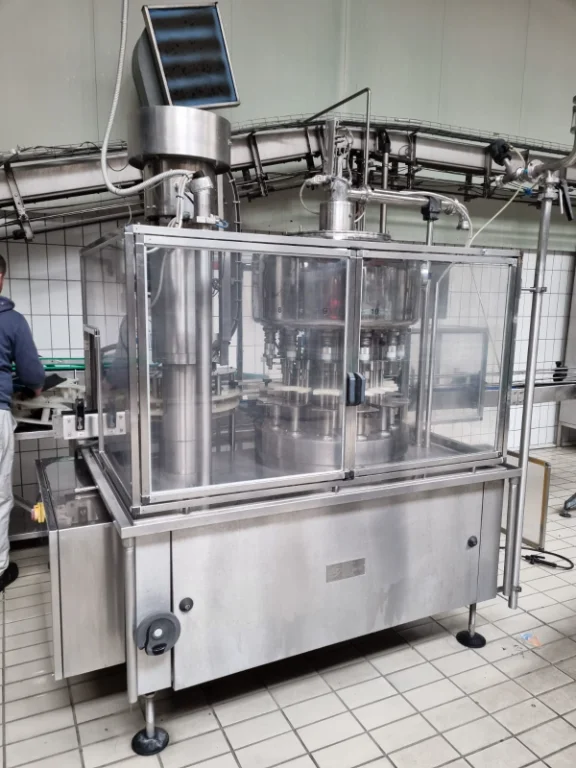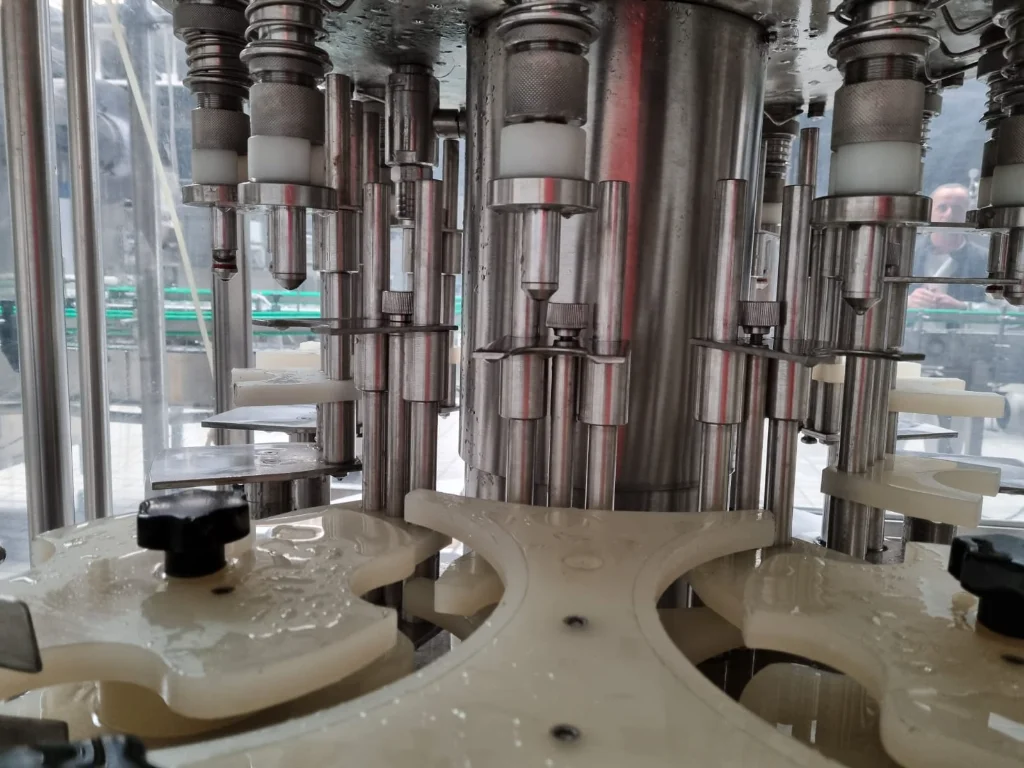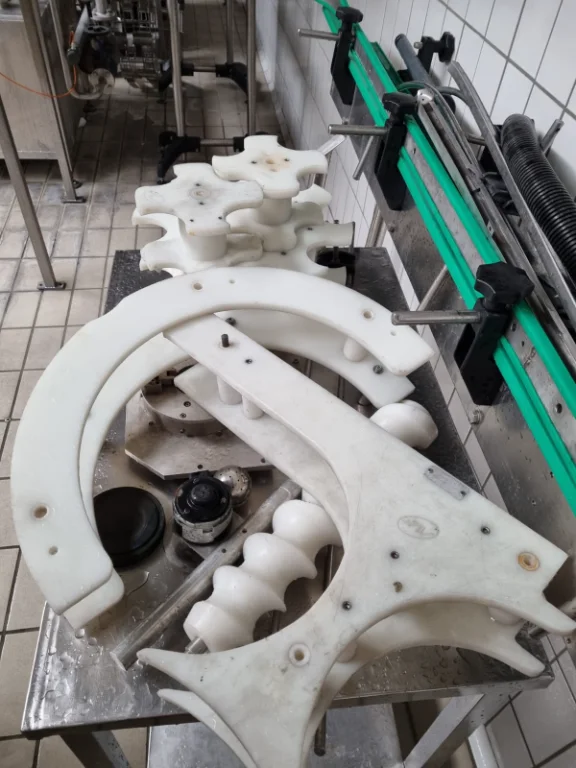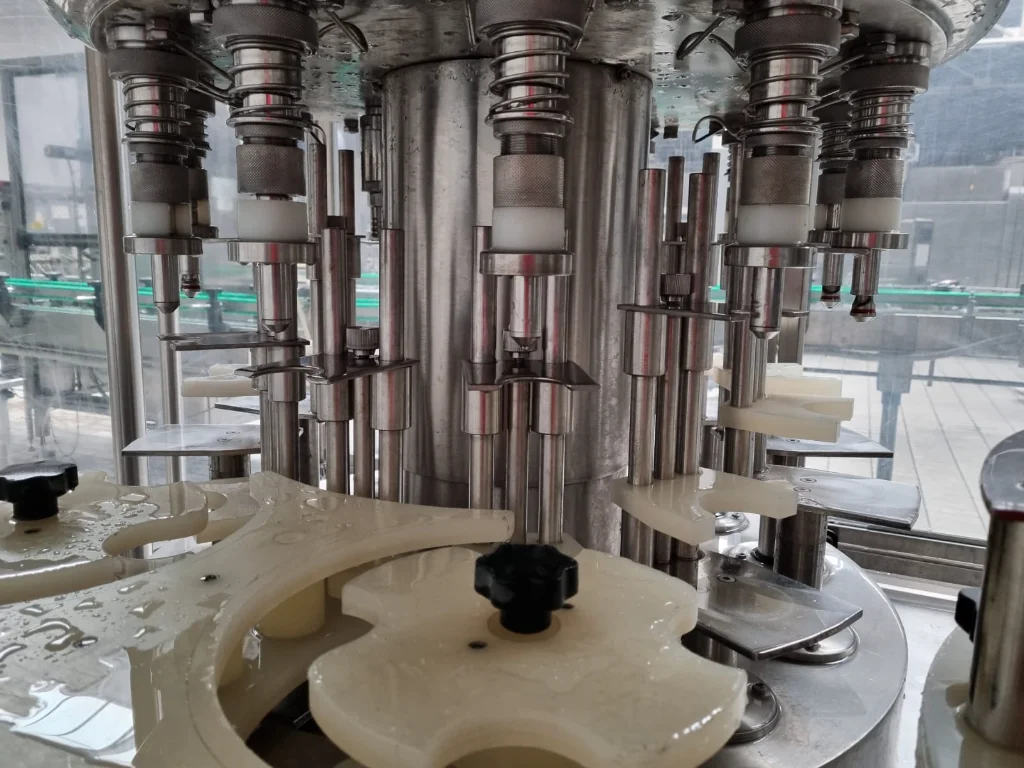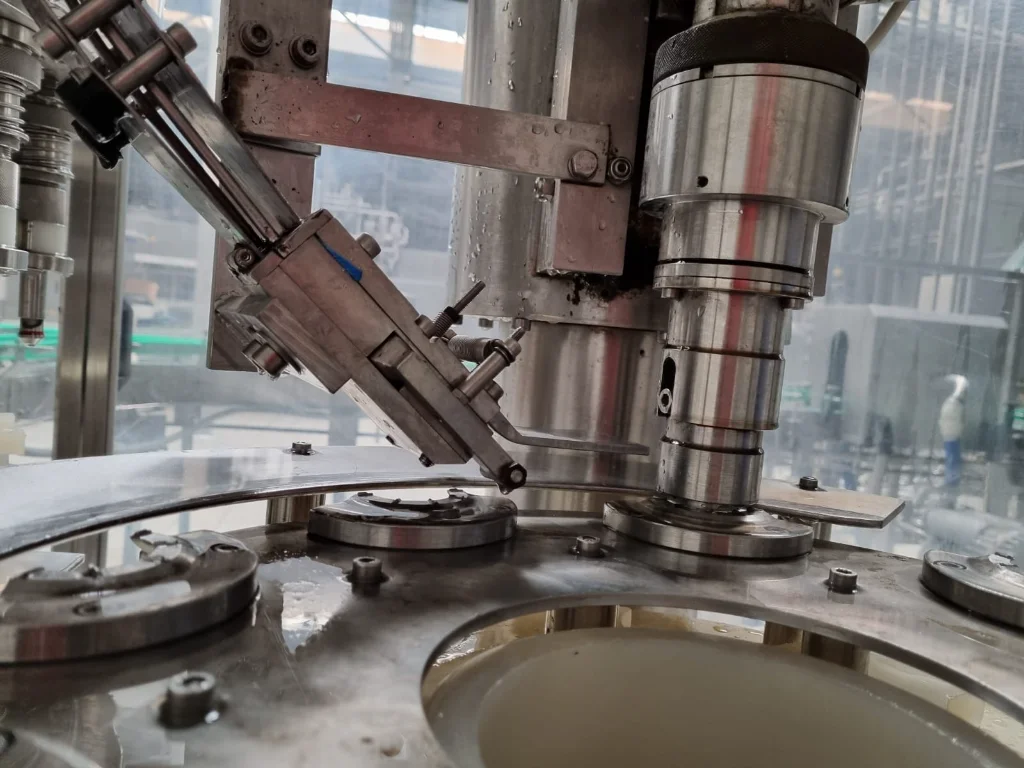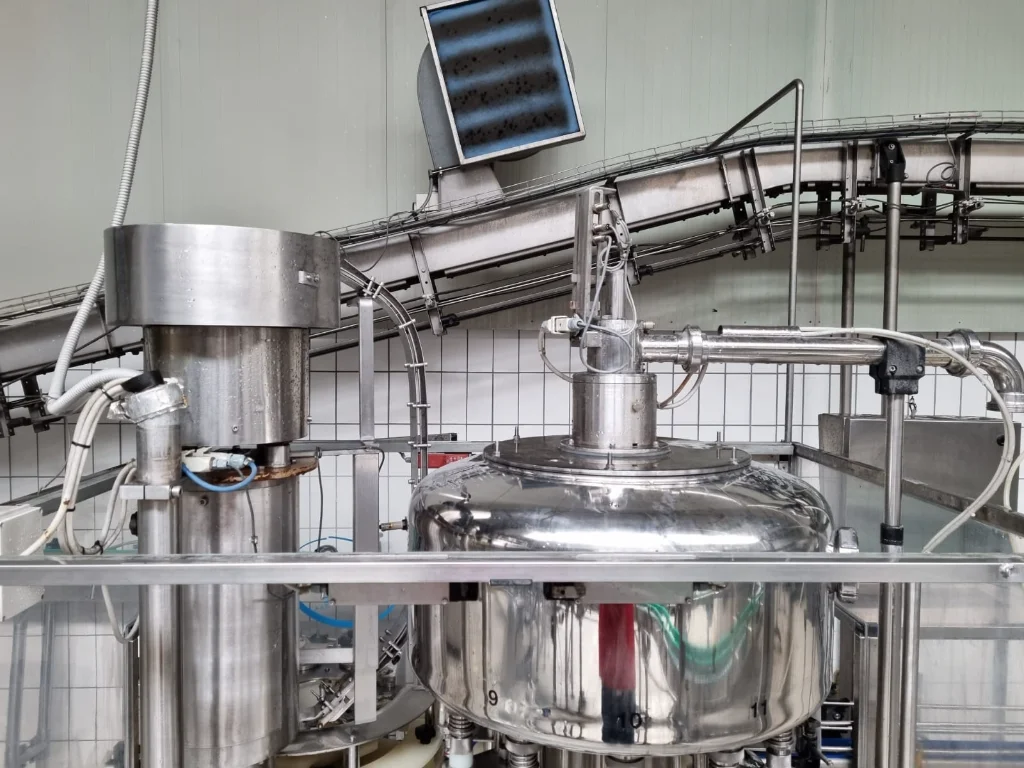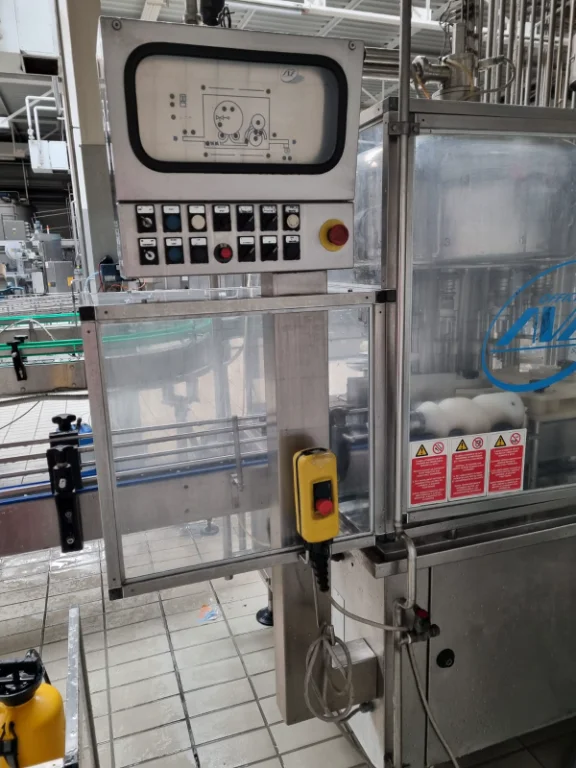Description
AVE Aurora 12/1 Filling Monoblock – Overview
The AVE Aurora 12/1 Filling Monoblock is a compact filler-capper unit engineered for dairy applications, specifically designed for PET bottles used in milk and yogurt packaging. This second hand monoblock integrates filling and capping operations within a single synchronized frame to optimize space, efficiency, and hygiene on a used bottling line. Manufactured by AVE, a respected Italian brand in industrial packaging machinery, this model provides reliable performance for beverage production where gentle product handling and sanitary design are essential.
With a capacity of up to 2,000 bottles per hour at 1.0L, the Aurora 12/1 supports common dairy formats such as 0.5L and 1.0L PET containers with a 38mm neck finish. Its 12/1 configuration denotes 12 filling valves and 1 capping head, offering a balanced throughput for medium-scale operations. The machine’s monoblock architecture simplifies line layout and reduces product exposure, making it a practical solution for milk and yogurt filling within industrial packaging environments.
Technical Specifications & Performance Data
- Manufacturer: AVE
- Model: Aurora 12/1
- Year of manufacture: 1998
- Machine type: Filling Monoblock (filler + capper)
- Production speed: up to 2,000 bph at 1.0L
- Container types: PET bottles
- Bottle formats: 0.5L, 1.0L
- Neck finish: 38mm
- Configuration: 12 filling valves / 1 capping head
Advanced Automation & Control Systems
The monoblock configuration synchronizes filling and capping turrets for precise container handling and repeatable performance. The integrated design helps minimize handling steps and supports hygienic operation for dairy products. Quick mechanical adjustments facilitate format changes between 0.5L and 1.0L PET bottles, while the unified drive concept maintains stable throughput and consistent cap application. Safety guarding and interlocks are typically provided to protect operators and ensure consistent operation.
Production Line Integration Capabilities
This AVE monoblock is suited for inline integration with standard beverage production equipment such as infeed conveyors, bottle unscramblers or depalletizers upstream, and downstream labelers, inspectors, and packers. Its compact footprint helps simplify layout in existing used bottling lines. The machine handles 38mm neck PET bottles and supports typical dairy volumes, enabling flexible use across milk and yogurt SKUs within beverage production and industrial packaging environments.
Machine Condition & Maintenance History
The unit is offered as a second hand filling monoblock and is presented for sale in working condition, ready for operation subject to standard installation and commissioning procedures. As with any pre-owned bottling equipment, buyers are encouraged to verify specific maintenance records, conduct inspection, and confirm performance on their product and formats.
Operational Performance & Versatility
Designed for dairy applications, the machine supports filling of milk and yogurt into PET containers with a 38mm neck. The synchronized capper ensures proper closure torque and seal integrity suited for dairy distribution. The 12/1 configuration provides a balanced speed profile for medium output needs, while PET handling enables lightweight, shatter-resistant packaging.
Installation Requirements & Site Preparation
The compact monoblock frame allows efficient use of floor space. Standard utilities for a filler-capper—electrical power, compressed air, and product supply—are required. Site integration typically involves conveyor connections, container infeed/outfeed alignment, and line control interfacing. A level foundation and appropriate environmental conditions for dairy processing are recommended.
Safety Standards & Compliance Certification
The machine includes typical safety features for bottling equipment such as fixed and interlocked guards and emergency stop devices. Its monoblock configuration supports hygienic operation for food-grade applications. Buyers should confirm any specific compliance requirements for their region and production standards as part of the commissioning process.

